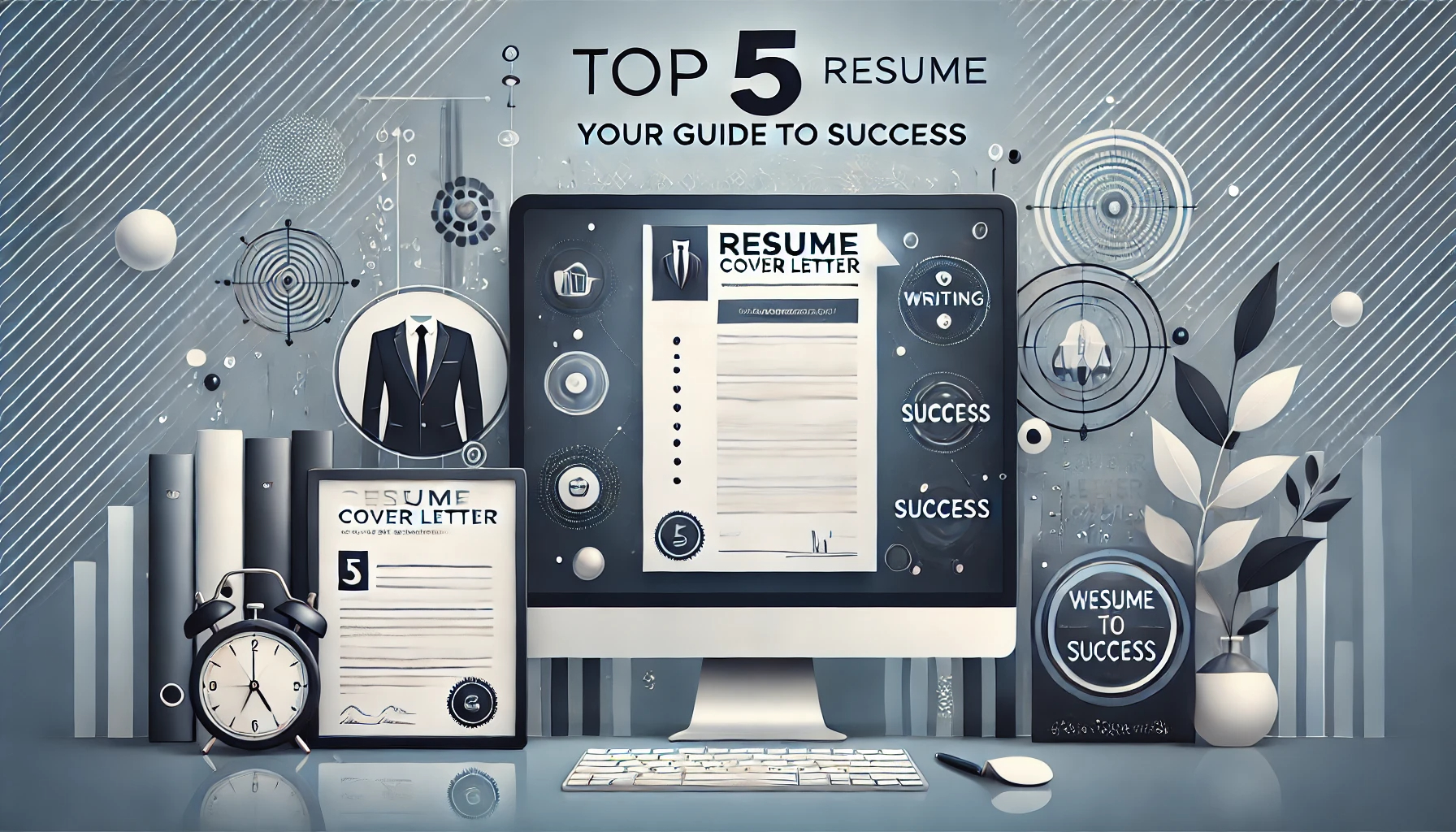Top 5 Resume Cover Letter: Your Guide to Success
Introduction
Your cover letter is often the first impression you make on a potential employer, and it sets the tone for your application. A strong, well-written cover letter complements your resume, showcases your enthusiasm, and highlights why you’re the perfect candidate for the role. In this guide, we’ll dive into the key aspects of writing an exceptional cover letter and explore five examples tailored to various career paths. By the end, you’ll be equipped with the tools to craft your own winning cover letter.
What is a Resume Cover Letter?
A resume cover letter is a one-page document sent alongside your resume as part of your job application. Its purpose is to introduce yourself, explain why you’re applying, and emphasize your qualifications for the role.
Key components of a strong cover letter include:
Professional Greeting: Addressing the hiring manager by name, if possible.
Engaging Introduction: Capturing the reader’s attention and stating your intent.
Body Paragraphs: Highlighting relevant skills, achievements, and experiences.
Compelling Closing: Encouraging the hiring manager to take action, such as scheduling an interview.
Why a Strong Cover Letter Matters
While some job seekers overlook the importance of a cover letter, it’s a powerful tool for standing out in a competitive job market. Here’s why:
First Impressions Count: Your cover letter is often the first document a recruiter reads. A polished, thoughtful letter demonstrates professionalism.
Adds Context to Your Resume: It explains the “why” behind your application and connects your experience to the specific job.
Showcases Your Personality: Unlike a resume, your cover letter allows your enthusiasm and voice to shine.
Anatomy of a Perfect Cover Letter
A successful cover letter follows a clear structure that ensures all critical information is presented effectively.
Header
Add details of your contact info and of the employer too.
Greeting
Speak directly to the hiring manager. If you cannot find their proper name, then kindly use — “Dear Hiring Manager.”
Introduction
Start with a hook, enthusiasm for the role you're applying for and your excitement about their company.
Body Paragraphs
Discuss your relevant skills and accomplishments in a paragraph or two. Be results-oriented with numbers into your business.
Closing Paragraph
Leave things with a powerful call to action — ask for the interview, etc. Way To End It on a Positive Note — Thanking The Hiring Manager For Their Time
Signature
Conclude with “Sincerely” or “Best,” followed by your name.
Top 5 Resume Cover Letter Examples
Example 1: Entry-Level Job
Focus on enthusiasm and transferable skills.
Highlight academic achievements or internships relevant to the role.
Example 2: Mid-Career Professional
Showcase career growth and specialized expertise.
Include examples of leadership or innovative projects.
Example 3: Career Change
Emphasize transferable skills and explain why you’re pursuing a new industry.
Connect your background to the job requirements.
Example 4: Remote Position
Highlight self-motivation, time management, and virtual collaboration skills.
Provide examples of successful remote work.
Example 5: Executive Role
Focus on leadership, strategic impact, and results-driven achievements.
Mention specific successes, such as revenue growth or team development.
Common Mistakes to Avoid
Even the most experienced candidates can make errors in their cover letters. Avoid these pitfalls:
Using Generic Templates: Personalize every cover letter for the role and company.
Overloading Information: Keep it concise and focused on the most relevant points.
Ignoring Formatting Rules: Use a professional layout and proofread thoroughly.
Job Specific Cover Letter Writing
Personalizing your cover letter demonstrates to employers that you conducted some research. Follow these steps:
Do Your Homework on the Company: Mission, culture and what they need
Identify Key Skills and Qualifications From the Job Description
Align Your Experience: Discuss your relevant experience and align it to the specific role.
Crafting a Compelling Opening
The opening you write lays the groundwork for your entire letter. Start with:
An Honest Position: Show some excitement for the position.
Details: State how you found out about the position.
Hook: State one of your most significant achievements or skill
Highlighting Relevant Skills
Focus on your top strengths that align with the role:
Use Examples: Detail how you’ve successfully applied your skills.
Quantify Achievements: Include metrics like “increased sales by 20%.”
Closing with Impact
End your letter on a confident note:
Restate Your Interest: Reaffirm your enthusiasm for the role.
Request an Interview: Encourage the hiring manager to contact you.
Show Appreciation: Thank them for their time and consideration.
FAQs on Resume Cover Letters
Why is a cover letter important?
It adds context to your resume and allows you to explain why you’re a great fit.How long should a cover letter be?
One page, typically 3–4 concise paragraphs.Should I customize my cover letter for each job?
Yes, tailoring ensures it aligns with the job’s requirements.What if I don’t know the hiring manager’s name?
Use “Dear Hiring Manager” or “To Whom It May Concern.”Can I reuse parts of old cover letters?
Yes, but ensure they’re updated and specific to the new role.How do I address employment gaps in a cover letter?
Be honest and focus on skills gained during that time, such as volunteering or further education.
Conclusion
Crafting a standout resume cover letter is an essential step in securing your dream job. Use this guide to tailor your letter to each role, showcasing your unique strengths and professional achievements. Remember, a strong cover letter is the key to unlocking new opportunities.









